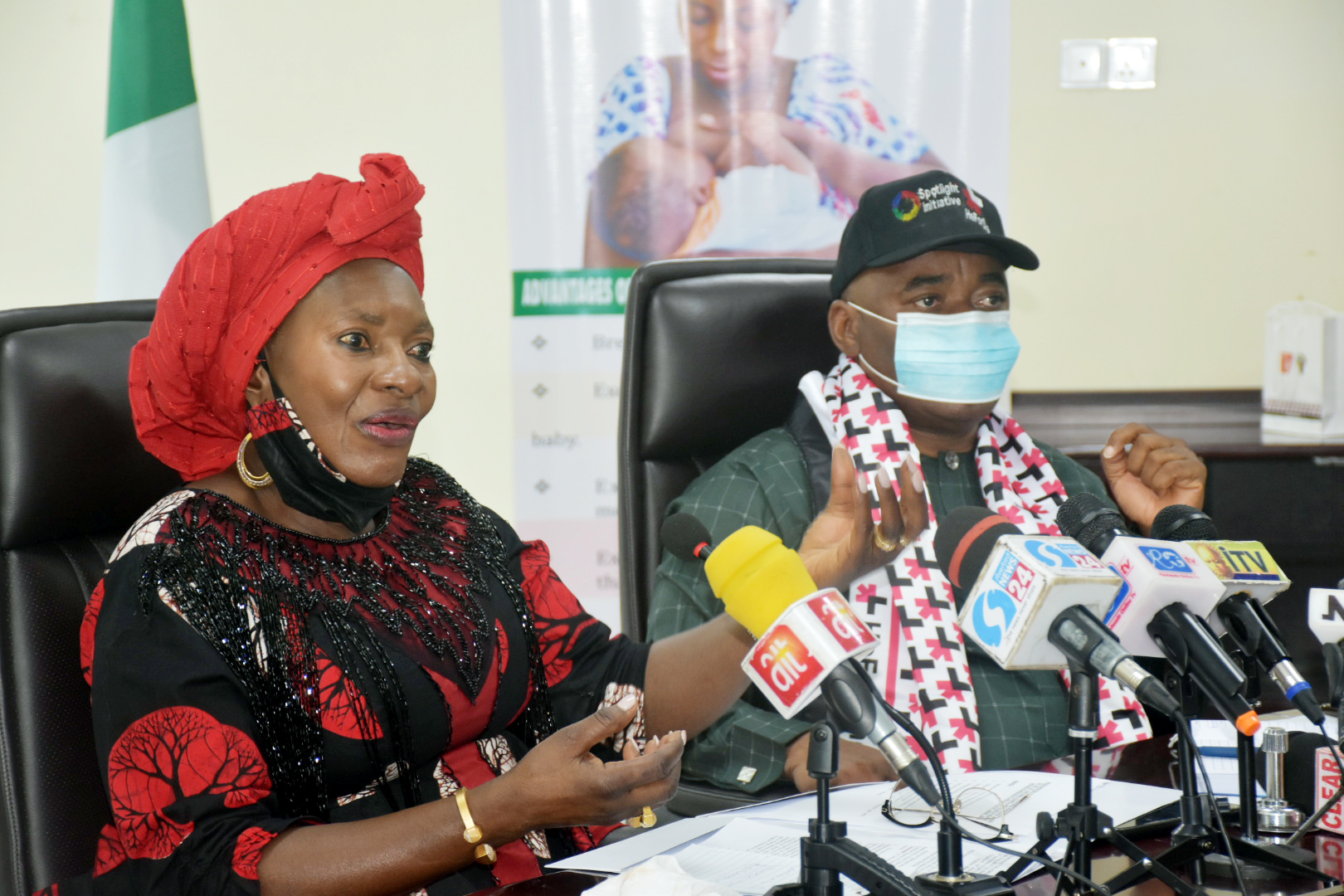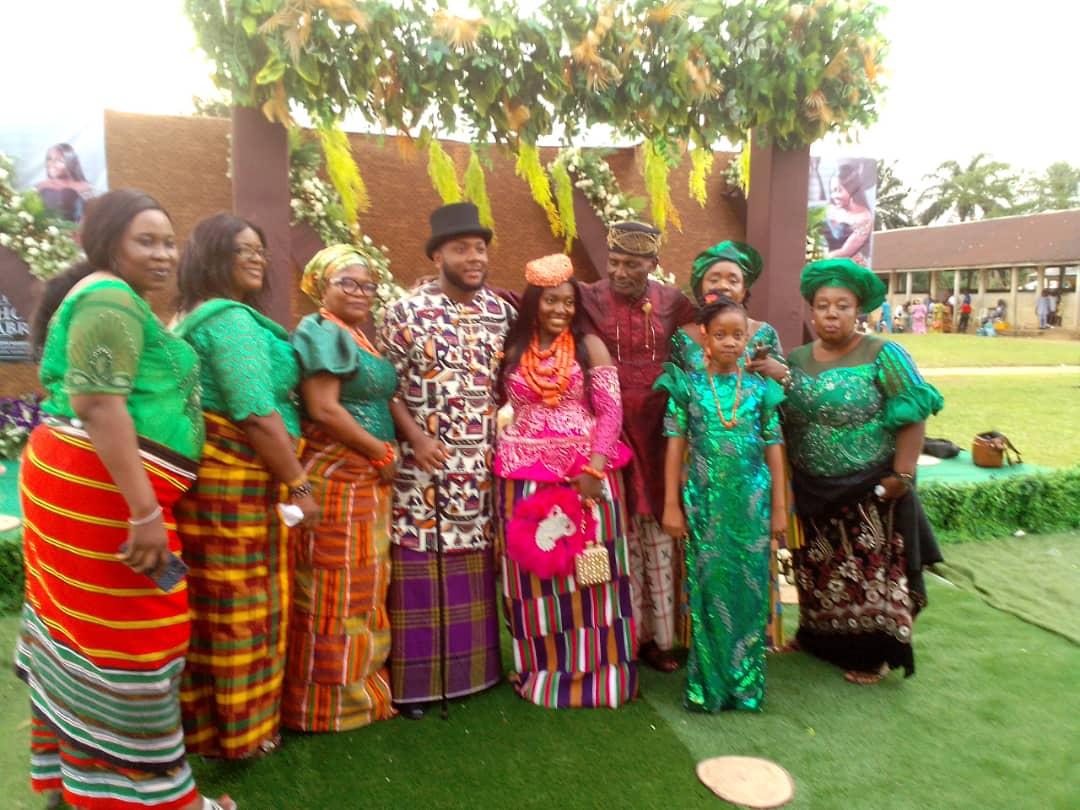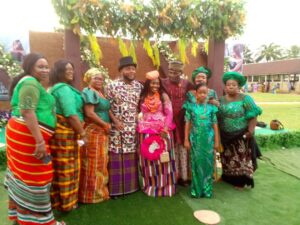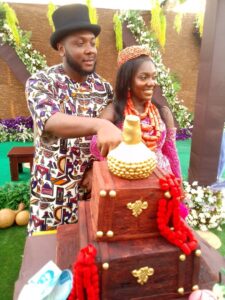Women
Parents’ Property: Women And Inheritance Wahala

Lately, the issue of female children, whether married or unmarried, being denied the right to inherit their parents ‘ property has been on the front burner.
There have been decisions and affirmatives confirming that female children can inherit their father’s property. Some families have given consent to that but others still do not.
There are those who tie tightly to cultural practices that females should not inherit their father’s property because according to them, they have been married outside.
Some people have vowed not, having the feeling that if women partake in the share of their father’s property, they will take the proceeds to their husbands’ houses. Even as educated as some persons are and have attained certain level in the society still hold into the opinion.
They claim that it is African culture. In some rural areas, they don’t bother whether such laws are in existence and view it as imported.
Another group says there is nothing wrong in that since the woman came from such lineage. For them, such idea is primitive and archaic in this 21st century.
The idea of women inheriting their parents’ property is good but how the message is going to be sent to the villages at the grassroots calls for concern.
One thing is for the government or a competent court to make and interpret such law, another is for kingsmen to obey and allow the female children inherit their parents’ property.
This issue of women inheriting directly from their lineage is supposed to be translated to the rural areas. This will give them a sense of belonging.
A legal practitioner, Chidi Enyie explained that every female child has a right of inheritance.
Citing Section 42 Sub 1&2 of the Constitution of the Federal Republic of Nigeria as amended, he said that every person has a right to freedom from discrimination.
He said that was invoked in Ukeje Vs Ukeje (2020), where the Supreme Court came to a judgement that no person by reason of sex shall be discriminated against by reason of sex by inheriting the property of the parents. The same way the male are entitled to inheritance, that’s the same female are entitled.
According to Barr. Enyie, the issue of sharing inheritance comes into play when a deceased parent dies intestate, that is dying without a WILL, but if it is when there is a WILL, it means the deceased person has done the sharing of the property in the WILL.
“In most cases, it happens when there is WILL. In our custom in Nigeria, they tend to favour the male child, but the Supreme Court judgement remains the same unless it is reversed in later decisions”, he said.
His words: “As it is, the barrier of discrimination has been nullified. Both male and female can inherit. Even if she dies, her children are supposed to continue the ownership of the property, they are supposed to inherit their mum. It can continue to run from generation to generation in that lineage”.
He pointed out that it depends largely on the type of marriage as sometimes in a customary marriage, the custom of the people will apply so long as the custom is not repugnant to national justice, equity and good conscience, then the custom will apply.
But in a Statutory marriage, Esien vs Esien (1934), he said that the Supreme Court came out with a decision that it is the biological father of the child and not the customary father of the child.
“But ignorance on the part of the society tries to hamper the execution of the judgement of the Supreme Court”, he insisted.
He maintained that the judgement of Ukeje vs Ukeje has been criticised by the Ibo tribe that it wants to nullify their customs stressing that it should not prescribe what their custom should be.
He advocated that women should remain vibrant and contend for their right until awareness is created about the quality of both male and female inheritance.
A pharmacist, Mr. Edet Okong, said such issue is prevalent in Nigeria because of poverty and illiteracy while it is not practised in other countries.
He noted that women have a share in his family whenever they are sharing things. He asked: “Is it not somebody from that family that gave birth to the woman?”
A legal practitioner, Mr. Ejike Uboh, noted that the issue of inheritance concerning women has to be handled by the court.
He said that NGOs need to carry out a lot of campaigns to the rural areas to be able to change the mindset of people who still hold into such cultural practice.
He said that females inheriting their father’s property is good and traceable to the Holy scripture and called on FIDA and traditional rulers who are the embodiment of customs to sensitise people giving reasons why such practice should stop.
A mechanic, Nude Ikegwuru, insisted that it is impossible for a daughter to inherit her father’s property and argued that women are exempted from paying levies in some communities and so should not.
He made reference to the Aba women riot of 1925 which prevents women from paying tax in Nigeria.
According to a medical laboratory scientist, Ebere Nduidi, when a woman is not married, she should have right to any property in her father’s home but when gets married, I don’t think that is necessary.
He emphasised that when a woman gets married, she changes her name and start answering her husband’s name, becomes somebody’s wife and so should not as she has been legally married.
Although he argued that the daughter can if it is her biological father’s property and not a general family case and insisted that if she gets the property before the death of the father, she should not return it.
“Fathers have the right to WILL properties to their daughters if they want. They have equal opportunity as the male children”, he opined.
An Entrepreneur, Davies Peter, said a woman can inherit her father’s property while she is alive and after her lifetime, the property should be released to the family.
According to him, since she bears the name of another family, the children shouldn’t continue the inheritance.
He advised that natural justice has to take its course instead of imported law while the laws be properly looked into and maintained that there should be some exception to the interpretation of some of the law as regards Nigeria and Africa generally.
He said although some of the laws are treated based on the fact that women are referred to as the weaker sex and they try to wave certain things.
He cautioned that people should not bring what is impracticable into existence and argued that male and female are not equal.
An Architect, Mr. Kayode Ojo asked: “Don’t you think that when you give a woman land in her father’s house, another one in her husband’s house, it will be too much?”
“ A man and a woman is a family, the husband and the children, so she should inherit in her husband’s house”, he noted.
Although the law supersedes tradition, he said, but that if he wants to give the land to his daughter, at the end of the day, it is her own and insisted that tradition cannot prove the law wrong.
A pharmacist, Mary Udoh, said that fathers should be sensitised about writing WILLs before death, so that if a property is bequeathed to whether a female or male, nobody under the law can take it away from such child.
An engineer, Emeka Obi, said what one may call cultural barriers and taboos is a common problem in Nigeria.
As he puts it: “People’s customs and traditions are peculiar to those who practice them. If according to the way of life of a given people, their daughters don’t have a place in the family inheritance, so be it, but if out of love or good luck, a father WILL a property to any of his daughters, I have no problem with that”.
When it comes to inheritance, a girl born into a family, married or unmarried will be denied access to father’s property but if it has to do with the demise of parents or sickness, the woman and the husband will be mandated to provide a cow for the burial rites or offset medical bills.
The consequence of denying the female child the right of inheritance of father’s property is that if it comes to a situation where she is expected to contribute to family pressures, definitely she will withdraw.
I’m not sure that any property can be too much to be owned by a woman. If she has properties both in her father’s house and husband’s home, better for the children, after all, they were not stolen but inherited from grand parents.
Religious leaders should preach more to the populace on improving the lives of women in the society.
By: Eunice Choko-Kayode
Women
The Desire Of Every Woman In Marriage

A woman needs a man that is honest, trustworthy, nice, loving and financially stable.
There are no two ways about finance in marriage. No matter the level of love, If there is no money, it is always difficult.

Referring to the Biblical belief in Genesis 3:Your desire shall be unto you……..
That is one aspect the woman expects her husband to take care of.
A woman wants a husband that is not lazy, at least helping to do one or two things. A man that is educated and intelligent.
She knows that there is a trait that her husband has. Traits of taking care of people, giving freely to people and caring for her family.
A woman wants to love a husband that has family interest at heart. A man that spends time with his family, remembering his family even as he is away from home.
A woman should not antagonise her husband because of one error or the other. No matter the level of offence he may have committed, you still show some love.

According to the Scripture, it is with wisdom that the women builds her home.
It is not as if the woman will not monitor her husband, but to certain limit. Don’t be a monitoring spirit. Don’t allow anything to take your joy.
Don’t loose trust in your husband.
The idea of checking your husband’s phone should be discouraged. The more you check your husband and his phone, the more you loose your joy.

The home should not be a battle ground for a woman and man. A woman should be able to ask herself if the check on her husband will pay her any good.
Draw a line to a point where you checkmate your husband’s activities.
A woman wants a man that will love her and telling her you love her will be all she desires.
Eunice Choko-Kayode
Women
What Women Want In Yet-To -Be Husbands
What women want in their yet-to- be husbands matters a lot as far as marriage is concerned.
A woman desires a good fnancial prospect. Interestingly, some modern women place a man’s financial potential as more desirable than they have in the past.
Many decades ago, women ranked it lower on the list. It still comes in after items like love and maturity, but perhaps today’s women realise that a good economic partner is good husband material.
Good health has been an important characteristic for women through the 20th century and remains so these days. One might argue that because we’re living even longer, health plays a huge role in the success of a marriage. Women are anxious to know that their partners are healthy to be able to run the family together.
You discover that in most faith based organisations, would- be couples are mandated to go for medical tests to ascertain their health status as it concerns HIV/AIDS, Genotype and other related ones. This according to stakeholders is to ensure that couples raise healthy families.
Ambition has become less important to women over time, though it still being considered even if women nowadays are thriving in the workforce competing with the male folk. It may be because more women are thriving in the workforce, they want a husband who has earning power but are not looking for him to be the sole provider.
More women want husbands with pleasing disposition. They may not want a man who is always moody. A man who is always cheerful is whom they desire.
Surprisingly, a man’s likes do not rank as high on women’s list of wants as it used to. Until recently, women are more willing to accept a man for who he his, despite the inevitable mood he may be.
Sociability from both men and women rank very high on their marriag material list. And for both sexes, it has been steadily moving up the list for many years. The rise of the “love marriage,” a partnership based on attraction rather than practicalities (like wealth or status) might mean that married couples are more likely to be friends and have mutual circles of friends.
A lot of couples want to associate with others and then socialise. Attending parties of other friends forms part of their marriage requirements.
Women have placed education and intelligence top making it one of their most desirable male traits for decades. This timeline coincides with more and more women receiving college education themselves. Once education becomes important in women’s lives, it is a more attractive trait in potential husbands.
Of course when a woman is educated, she is likely to go for an educated man. When they are gainfully employed, their income boost the family affairs faster.
Today, women are much more attracted to men who are interested in home and family than they ever have been. Men who have desire for their home and children is whom they desire.
After a days job, a man will come home to ensure that his children are comfortable. Because most women today are expecting to be in dual-earner relationships, they want husbands who will be happy and willing to contribute at home. More women today even report that they hope he will take the lead at home.
A woman wants a man who is emotionally stable and mature. Growing big physically is not the issue but maturity in the heart.
Men, too, place a heavy emphasis on a potential wife’s emotional maturity, signaling that it is a key quality for a stable partnership. Women seem to look past appearance to the heart of the matter.
A woman wants a man who is not easily provoked. Dependable character is what some women want in marriage.
Women want husbands that they can count on, and this has not changed in recent years. Yes, women look to their spouses to be lovers and friends, they also want them to be supportive and trustworthy. They want to know that their husbands will be there and remain loyal. Men, too, desire dependable character from their yet-to be wives.
Mutual attraction and love from the first appearance is what they want till they become old.
The highest-rated characteristic women seek from men is mutual attraction and love. Some no longer look for a man who will provide everything, afterall they are also educated and are gainfully employed, they want to be in love.
For some women, even when the man do not provide household needs, the love shown on her is enough. When women had no job prospects and needed to marry, they desired love . The women’s movement has not only helped women pursue careers, it has also given them more choice in love.
Women
Echoes Of IWD : Need To Invest In Women
As this year’s Internatinal Women’s Day (IWD) has come and gone, there are calls from different quarters on the need to invest in women so that we can achieve accelerated growth.
It was, indeed, a thing of joy when Rivers Women Unite For Sim, took delivery of large quantities of sanitary towels and some bags of rice provided them for this year’s celebration.
Many young women expressed joy that they got such gesture since some of them have financial problems getting sanitary towels whenever they are on.
Some secondary school students were also lucky to have a share of the benefits. They also got some sanitary towels.
The Rivers State Commissioner for Women Affairs organised a platform to celebrate and honour the women for the remarkable jobs they perform in their homes and society.
Addressing women on the occasion, the Hon. Commissioner for Women Affairs, Dr. Roseline Apawari Uranta, noted that women from time immemorial have been great pillars in achieving remarkable heights and stressed that IWD across the globe is pivotal all women for the roles they play in bringing, nurturing and sustaining life.
Dr. Uranta said that IWD, which started in 1911 and celebrated annually on March 8, is a global day that provides women a platform to address economic inclusion, participation in political and public life.
She said the day was set aside to look into lack of access to education for the girl-child, gender-based violence, child marriage, child trafficking, harmful cultural practices as well as other challenges facing women around the globe.
The Hon. Commissioner, who described March 8 as a day to celebrate the socio-economic, cultural and political achievements of women, emphasised that it is a day that offers women the opportunity to reflect on progressive achievements.
Noting that it is an opportunity to call for change, she stressed that it is also an opportunity to celebrate acts of courage and every achievement made by ordinary women who did extraordinary things and are remembered in history.
She noted that the IWD2024 theme:”Invest In Women, Accelerate Progress”, is timely and apt because according to her, to achieve gender equality, we must ensure that the rights, responsibilities and opportunities of women do not elude them.
Her words: ” We must see investing in women as a human right issue and consider investing in women as a social tool to eradicate poverty since women are helpmeet in the homes while a handful are breadwinners in their respective families”.
The commissioner urged women to uphold the deliberate act of investing in themselves, be it furthering formal education, developing a new skill as well as learning a trade.
“Shun idleness, always find something positive and productive to do, regardless of your age, social status and financial capabilities”, she said.
In a paper presentation, Dr. Dabota God’swill Jumbo, reiterated that investing in women would attract good and positive dividends to herself and the society at large and noted that it is essential in addressing poverty, hunger and climate change.
The guest speaker said women need more opportunities in elective and appointive positions, hence the need to encourage and support them in politics.
According to her, when you invest in women, they will be able to create safer environment devoid of gender-based violence.
In a goodwill message, the spokesperson, Rivers Women Unite For Sim, Mrs Charity Deemua appreciated the organisers for making it possible for women to gather and celebrate themselves.
She commended those who created a day like March 8 of every year to celebrate women and regretted that the girl-child was seen as a second-class person decades ago.
The former commissioner, Rivers State House of Assembly Commission, described those who taught it wise for women to celebrate as conquerors, tough and strong.
International Association of World Peace Advocates, a world-class organisation with the United Nations, honoured different categories of women.
In Cross River State, 150 women were empowered with about N15m to boost their small and medium scale businesses.
According to stakeholders, the women empowerment is vital in addressing social, economic and political challenges and will make them self-reliant.
An NGO, Association of Professional Women Engineering Technologists (APWET), said it’s aim is to promote professional excellence among engineering personnel, advocating for women and girl-child education.
With what we saw in terms of response to women’s call on issues affecting them from relevant authorities, we are optimistic that the women will do better whenever they are empowered.
If we must kick out cervical, breast and other forms of cancer in women, underage marriage, prostitution, we must invest in women.
There were goodwill messages from National Council for Women Societies (NCWS), International Federation of Female Lawyers (FIDA), Medical Women Association of Nigeria (MWAN), Nigeria Copyright Commission (NCC, Nigeria Association of Female Journalists (NAWOJ), among others.
By: Eunice Choko-Kayode
-

 Business5 days ago
Business5 days agoNigerian Breweries To Suspend Operations In Two Plants
-

 Rivers5 days ago
Rivers5 days agoNBA Women Forum Visits Solicitor-General, Commends Fubara Over Appointment
-

 Business2 days ago
Business2 days agoGEIL, NCDMB Train Nigerians On Oil, Gas Engineering
-
SMEs2 days ago
SMEDAN Directs N5bn Loan Applicants To Submit CAC Certificate
-

 Sports5 days ago
Sports5 days agoNFF Appoints New Head Coach For Golden Eaglets
-

 News5 days ago
News5 days agoNAF Jet Bombs Illegal Refining Sites In Rivers
-

 Politics2 days ago
Politics2 days agoAyu Withdraws Case Against PDP Ahead NEC Meeting
-

 News2 days ago
News2 days agoNavy Apprehends 75 Stowaways In Eight Months

